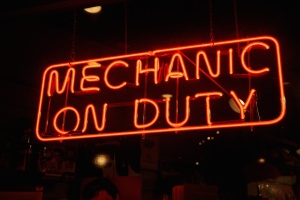grievous: causing great sadness, suffering, or pain : very serious or severe—Merriam-Webster
 Atrocities, especially those on a large scale such as a public shooting rampage, mark people who are consumed by their own inner turmoil.
Atrocities, especially those on a large scale such as a public shooting rampage, mark people who are consumed by their own inner turmoil.
Most of us suffer a milder form of turmoil. It makes us miserable, it jinxes our relationships, and it can make us feel worthless and hopeless.
We have known for decades how to help resolve such conflicts, but doing that is clearly not our priority. Nor do we make a serious effort to avoid inflicting the same kind of pain on younger generations. As a Facebook friend said, “We advocate stupid.”
The essence and root of our problem is that we were psychologically wounded early in life, at a time when we could not put the pain into a context that explained that a wounded person was now wounding us.
When I was in the first grade my dad would come home drunk and get into a shouting match with my mom. Sometimes they would break dishes, symbolic, I assume, of wanting to cause physical harm to each other. I often wonder how many other displays of grievous destruction I do not recall. Remember them or not, they shaped my sense of self.
I recently replaced my copy of Keeping the Love You Find that was published in 1992. It bills itself as a guide for singles, but it is priceless for all of us. The author is Harville Hendrix. The phrase grievous destruction is from that book. In 1988 he published Getting the Love You Want.
His work is complementary to that by Scott Peck, Thomas Moore, and John Bradshaw. They all remind us of our primitive mind that remembers hurts forever, and takes them very personally. Our “old brain” does not have the skill set to strategize, redeem, or restore.
Dr. Hendrix plots the stages of development as children grow up. The crowning stage is to express intimacy. The male adults in my family expressed intimacy by getting drunk together. That’s all they knew how to do as a method of bonding. They bonded with women only with sex.
The point of this post is that we can learn important lessons from books that have been with us for a long time. Mr. Peck’s book carries the title The Road Less Traveled. The opening sentence is, “Life is difficult.” Our attempts to outwit that fundamental truth lead to all kinds of pain.
The road he describes is still less traveled. I think we should take a fresh look at what it could mean to us to take a ride.

